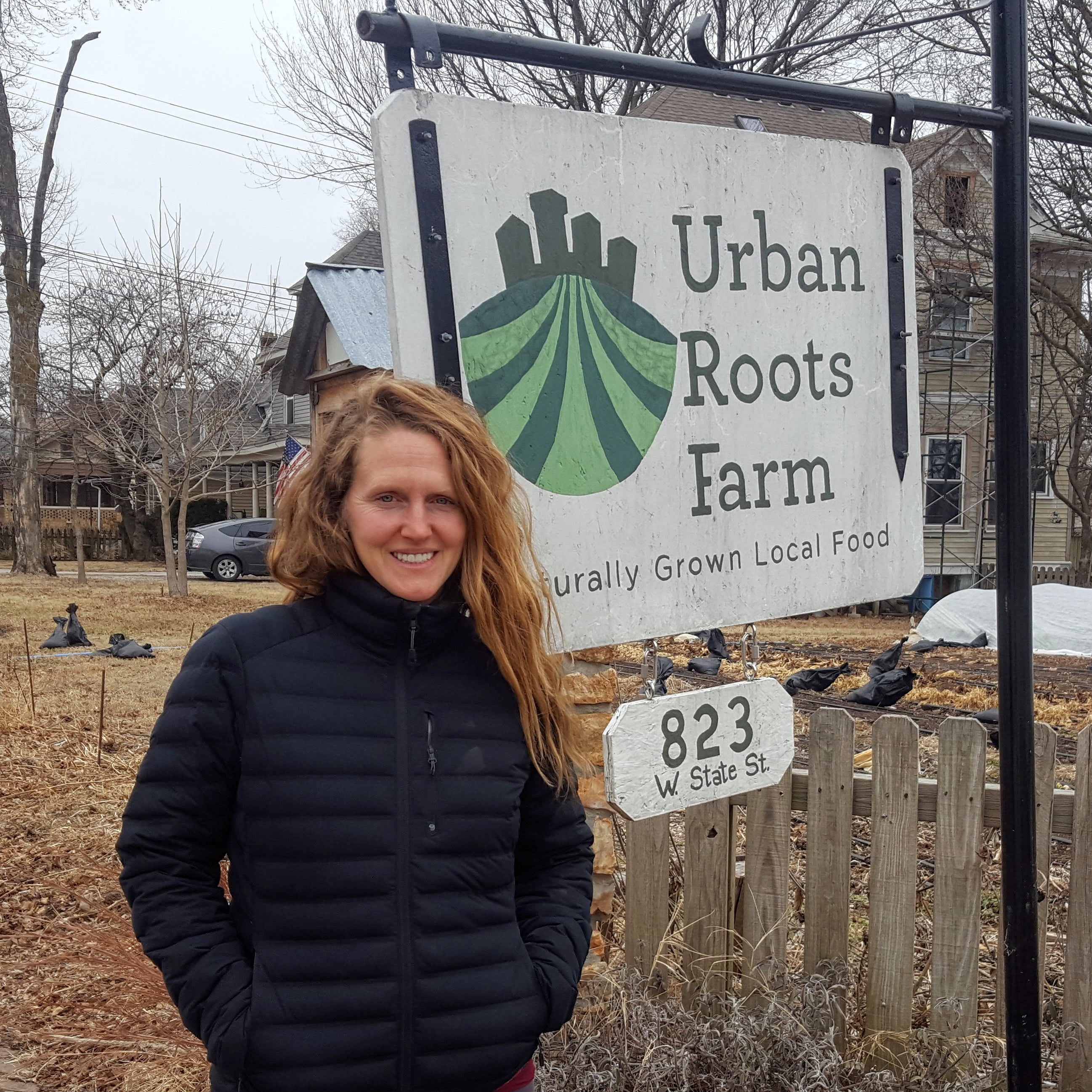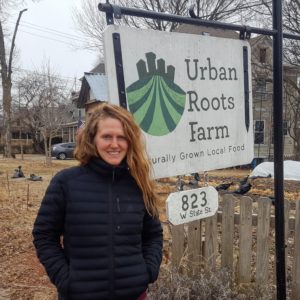
In 2010, Adam and Melissa Millsap started Urban Roots Farm, a four-season urban vegetable farm located in downtown Springfield, Missouri. The 1.7-acre farm is cared for using natural and sustainable techniques. The Scoop recently caught up with Melissa Millsap to talk about Urban Roots and how it works.

How did Urban Roots Farm get started?
We originally bought this house with the idea that we would flip it and sell it and move to the county. After selling it, we would start a farm because I always wanted to be a farmer. We enjoyed living in central Springfield because of its proximity to downtown. Over time we did research about urban farms and whether it was financially possible to do so. Once we discovered that it was possible we were able to get the property next door and turn it into a farm. It quickly became a passion of ours and we decided that we had to do it.
What makes Urban Roots unique compared to other farms?
We are smack dab in the middle of a neighborhood, which is in the middle of the city. We don’t have the traditional white picket fence, the big red barn, and the rolling hills. Because we are close to the city there are limitations, such as building codes, livestock, or noise. We can’t go out and till and till until one o’clock at night. Also, we are a four seasons farm, so we can grow all year round.
Can you explain what a four seasons farm is?
Well we don’t ever stop producing food. In the winter time, which is the most restricting season, we just grow root crops and your hearty greens like your collards, spinach, and kale. There’s a storage facility where we keep things like garlic, ginger, sweet potatoes, and winter squash that were all grown in the summer. That way we can sell them in the winter alongside our more restricted winter vegetables.
Urban Roots uses natural and sustainable techniques, what are some of those techniques?
We would never be doing this if it negatively impacted the environment. We pay very close attention to how we treat the soil. We’ve always said the soil is our number one crop, without out healthy soil we don’t have healthy crops. Agriculture is one of the biggest pollutants to our waterways. Our goal is to be a zero run off site. Everything is on drip irrigation instead of overhead irrigation, which causes us to use less water. Drip irrigation allows us to put the water right where it’s needed. While overhead irrigation loses a lot of water to evaporation. By using timers around the farm, we won’t over water. On top of all of that, everything is hooked up to a weather station. When it rains our irrigation shuts off for 48 hours. We’ve also done a lot of ground work, so when it rains we have a rain garden in the back and we’ve built berms.
What do you think is the most beneficial thing Urban Roots is doing?
This area has one of the lowest incomes in Springfield. There is a lot of crime here. Before the farm was here there was a lot of drug use and prostitution. That is no longer taking place near the property anymore, which I think is a huge impact. Another, probably more selfish, reason is that it’s important to follow your passion and do what you feel you’ve been brought here to do. I’m extremely thankful that I’ve been given the opportunity to do so.